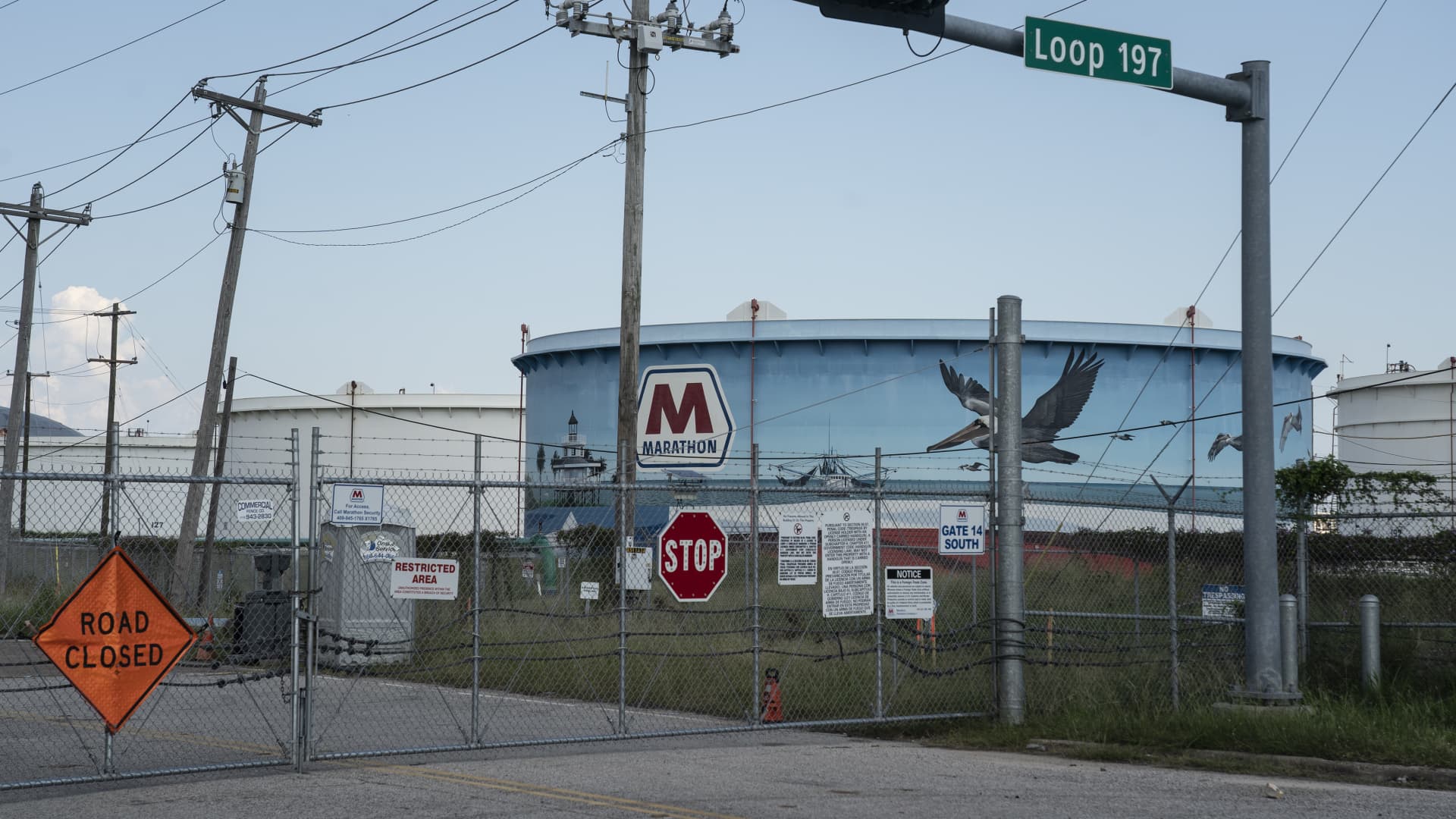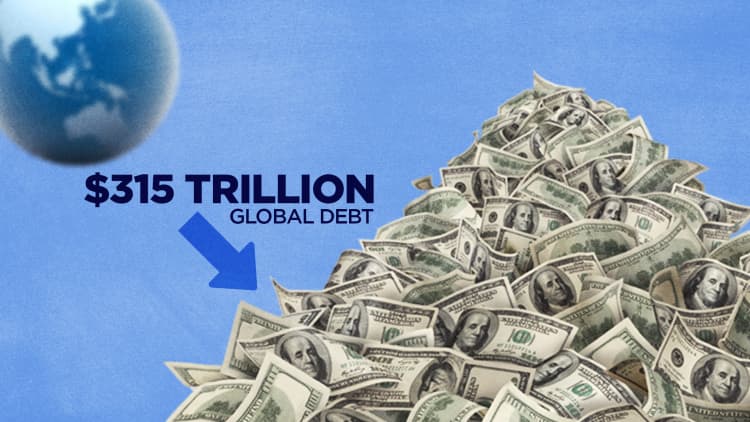This was an increase from 114 share buybacks in March and 93 in April 2023. Trusts bought back a total of £620m last month, down 2% from March but up 152% from April 2023, when shares worth £246m were repurchased. Number of investment trust share buybacks hits record high but effectiveness called into question Overall, £2.2bn had been repurchased by investment trusts in the first four months of the year, a 106% increase versus the equivalent period last year. Scottish Mortgage made the biggest collective share buyback purchases in April and year-to-date, at £75m and £212m repurc…
Arcline sells Voltyx to Asplundh
San Francisco-based private equity firm Arcline has sold its portfolio company Voltyx, a provider of technical electric infrastructure services across the utility, renewable energy, data centre and industrial markets, to Asplundh Tree Expert, a provider of vegetation management and infrastructure services.
Based in Nashville, Tennessee, Voltyx serves around 1,500 customers from 35 locations employing over 1,200 people, according to a press statement.
Harris Williams, Stifel Nicolaus & Company, Kirkland & Ellis and Fredrikson & Byron PA advised Arcline on the transaction.
Mediterrania Capital Partners appoints MD for West Africa region
Mediterrania Capital Partners, a private equity firm focused on growth investments in North Africa and Sub-Saharan countries, has appointed Maty Ndiaye as its new Managing Director for the West Africa region.
Prior to joining Mediterrania Capital Partners, Ndiaye was the Head of Francophone West Africa at Admaius Capital Partners, where she contributed to building the investment portfolio and led fundraising efforts, according to a press statement.
Ndiaye began her career at Goldman Sachs in global investment research. She then joined Kingdom Zephyr Africa Management in London, where she was involved in CNIA Saada’s IPO in Morocco. She later became a managing director on the Africa private equity team at the Duet Group.
Ocorian appoints Chief Financial Officer
Ocorian, a global provider of fund administration, capital markets, corporate, trust and regulatory & compliance services, has appointed Craig Buick as the company’s new Chief Financial Officer.
Buick will be responsible for controllership, finance business partnership, business intelligence, group legal and M&A.
Prior to joining Ocorian, Buick was Group CEO and Group CFO at Cabot Credit Management. His past roles include senior positions at GE Capital in the UK, Europe and Asia. He started his career at PwC working in the UK, Indonesia, Australia and Russia.
UK debt market activity increases amid strengthening M&A pipeline
UK mid-market financing activity significantly increased in Q1 2024, compared to the same period in 2023, driven by a strengthening M&A market and robust debt fund activity, according to the latest data by global investment bank Houlihan Lokey.
With 47 transactions completed during the period, the report finds there was a substantial 18% increase in UK mid-cap deals compared to Q1 2023 (41 transactions). Although there was a slight 8% decline from Q4 2023 (51 transactions), this is typical for the traditionally low-volume first quarter.
The data reveals that debt funds played a dominant role in the activity this quarter, financing the vast majority (77%) of completed deals in Q1, while banks contributed to under a quarter (23%). The increase in debt funds’ share of transactions represents a significant 48% increase from Q1 2023, suggesting that funds are under increasing pressure to deploy capital after a slow 2023.
Additionally, the report highlights a shift in the nature of financings in the first quarter, charting a marked rise in new LBO activity, which accounted for almost half (48%) of all transactions, returning to levels not seen since Q1 2020. This reflects the uptick in M&A activity in the region this year.
Pennybacker closes Fund VI above target at $1.6bn
Real assets investment manager Pennybacker Capital Management has held the final closing of its sixth value opportunity series fund, Pennybacker VI, with $1.6bn in total capital commitments.
Fund VI focuses on investments in US real estate assets across equity and debt opportunities.
Austin, Texas-based Pennybacker has approximately $4bn in AUM and runs real estate and infrastructure investment strategies through closed-end and open-ended vehicles across the capital structure.
Stocks making the biggest moves premarket: Marathon Oil, Robinhood, American Airlines, Chewy & more
BHP’s £39bn pursuit of Anglo American on brink of collapse
Unlock the Editor’s Digest for free
Roula Khalaf, Editor of the FT, selects her favourite stories in this weekly newsletter.
BHP’s £39bn takeover bid for Anglo American has collapsed after a frenzied six-week pursuit.
In a last day of brinkmanship, BHP called for an extension to talks, which Anglo rebuffed, before the Australian mining company finally abandoned its takeover attempt minutes before a UK deadline to make a binding offer or walk away.
“While we believed that our proposal for Anglo American was a compelling opportunity to effectively grow the pie of value for both sets of shareholders, we were unable to reach agreement,” BHP chief executive Mike Henry said in a statement on Wednesday.
Henry had set his sights on Anglo’s prized copper business, expected to boom given the metal’s key role in the energy transition, but had no interest in acquiring Anglo’s South Africa-based Anglo American Platinum and Kumba Iron Ore operations.
The proposed deal required Anglo to first demerge the two businesses and was ultimately deemed too risky by Anglo’s board, which said on Wednesday that the offer remained “highly complex and unattractive”.
While disagreements over price have narrowed over the past month after BHP sweetened its all-share bid three times, the two companies always remained at loggerheads over the deal’s structure.
Shares in Anglo were down 1.2 per cent at £25.22.
Anglo argued that making the takeover conditional on demerging Kumba Iron Ore and Anglo American Platinum, a big employer in South Africa, would leave its shareholders exposed to any conditions Pretoria may have impose when control of the companies changed.
BHP dismissed those fears on earlier on Wednesday, saying the risks of its plan were “quantifiable and manageable” and that Anglo had overstated any cost to shareholders. “BHP is confident that the measures it has proposed to the board of Anglo American provide a viable pathway to resolve the matters raised by Anglo American and would support South African regulatory approvals,” it said.
BHP’s Wednesday deadline to make a firm offer or walk away, which was selected by Anglo, coincided with South Africa’s national election, adding an extra layer of political complexity.
Reached by phone on Wednesday afternoon, Gwede Mantashe, South Africa’s influential minerals minister and close ally of president Cyril Ramaphosa, said he agreed with Anglo’s decision to end its engagement with BHP. “They must now restructure and respond to the demand of the times,” he said, in reference to Anglo’s alternative plan to
Sterling climbs to 21-month high against euro as rate cut bets fade
Standard DigitalWeekend Print + Standard Digital
wasnow $75 per month
Complete digital access to quality FT journalism with expert analysis from industry leaders. Pay a year upfront and save 20%.
What’s included
Global news & analysisExpert opinionFT App on Android & iOSFT Edit appFirstFT: the day’s biggest stories20+ curated newslettersFollow topics & set alerts with myFTFT Videos & Podcasts20 monthly gift articles to shareLex: FT’s flagship investment column15+ Premium newsletters by leading expertsFT Digital Edition: our digitised print editionWeekday Print EditionFT WeekendFT Digital EditionGlobal news & analysisExpert opinionSpecial featuresExclusive FT analysisFT Digital EditionGlobal news & analysisExpert opinionSpecial featuresExclusive FT analysisGlobal news & analysisExpert opinionFT App on Android & iOSFT Edit appFirstFT: the day’s biggest stories20+ curated newslettersFollow topics & set alerts with myFTFT Videos & Podcasts10 monthly gift articles to shareGlobal news & analysisExpert opinionFT App on Android & iOSFT Edit appFirstFT: the day’s biggest stories20+ curated newslettersFollow topics & set alerts with myFTFT Videos & Podcasts20 monthly gift articles to shareLex: FT’s flagship investment column15+ Premium newsletters by leading expertsFT Digital Edition: our digitised print editionEverything in PrintWeekday Print EditionFT WeekendFT Digital EditionGlobal news & analysisExpert opinionSpecial featuresExclusive FT analysisPlusEverything in Premium DigitalEverything in Standard DigitalGlobal news & analysisExpert opinionSpecial featuresFirstFT newsletterVideos & PodcastsFT App on Android & iOSFT Edit app10 gift articles per monthExclusive FT analysisPremium newslettersFT Digital Edition10 additional gift articles per monthMake and share highlightsFT WorkspaceMarkets data widgetSubscription ManagerWorkflow integrationsOccasional readers go freeVolume discountFT Weekend Print deliveryPlusEverything in Standard DigitalFT Weekend Print deliveryPlusEverything in Premium Digital
Global debt has grown to $315 trillion this year — here’s how we got here
The world is mired in $315 trillion of debt, according to the latest May report by the Institute of International Finance. This latest global debt wave has been the biggest, fastest, and most wide-ranging rise since World War II, coinciding with the Covid-19 pandemic.
The world is mired in $315 trillion of debt, according to a report from the Institute of International Finance.
This global debt wave has been the biggest, fastest and most wide-ranging rise in debt since World War II, coinciding with the Covid-19 pandemic.
“This increase marks the second consecutive quarterly rise and was primarily driven by emerging markets, where debt surged to an unprecedented high of over $105 trillion—$55 trillion more than a decade ago,” the IIF said in its quarterly Global Debt Monitor report released in May.
Around two-thirds of the $315 trillion owed originates from mature economies, with Japan and the United States contributing the most to that debt pile.
However, the debt-to-GDP ratio for mature economies — which is seen as a good indicator of a country’s ability to service its debts — has been falling in general.
On the other hand, emerging markets held $105 trillion in debt, but their debt-to-GDP ratio hit a new high of 257%, pushing the overall ratio up for the first time in three years.
China, India and Mexico were the biggest contributors, the report noted.
The IIF identified stubborn inflation, rising trade friction and geopolitical tensions as factors that could pose a significant risk to debt dynamics, “putting upward pressure on global funding costs.”
“While the health of household balance sheets should provide a cushion against ‘higher for longer rates’ in the near term, government budget deficits are still higher than pre-pandemic levels,” the IIF added.
Of the $315 trillion debt stock, household debt, which includes mortgages, credit cards and student debt, among others, amounted to $59.1 trillion.
Business debt, which corporations use to finance their operations and growth, stood at $164.5 trillion, with the financial sector alone making up $70.4 trillion of that amount. Public debt made up the rest at $91.4 trillion.


